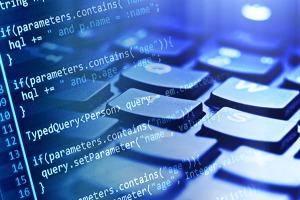Finding IP Value
The Fair Use Doctrine’s Impact on the Future of Software Development
 If a software company makes a free tool available online, can competing developers use it without the company’s permission? According to a California jury, the answer is yes, so long as the developers’ actions constitute fair use under The Copyright Act.
If a software company makes a free tool available online, can competing developers use it without the company’s permission? According to a California jury, the answer is yes, so long as the developers’ actions constitute fair use under The Copyright Act.
The Copyright Act, 17 U.S.C. §§ 101, et. seq. gives copyright holders exclusive rights to copyrighted material. However, fair use is a limitation on those rights and can provide a powerful defense to copyright infringement. Fair use is an exception to the rule that no one may use copyrighted material without permission from the owner, and allows copying for limited purposes such as criticism, comment, news reporting, teaching, scholarship, and research. If any given use qualifies as fair use, then no infringement has occurred. There are four factors which must be considered when evaluating whether the use of copyrighted material is fair: (1) the purpose of character of the use, including whether such use is of a commercial nature or is for nonprofit educational purposes; (2) the nature of the copyrighted work; (3) the amount and substantiality of the portion used in relation to the copyrighted work as a whole; and (4) the effect of the use upon the potential market for or value of the copyrighted work. Though the factors provide some guidance, fair use remains the most unsettled area of copyright law, especially as it relates to computer programming.
Two weeks ago, fair use proved to be an effective defense to copyright infringement claims in a high-profile case based upon the use of so-called “open-source” software language, or code that is made freely available. On May 26, 2016, after deliberating for three days, a California jury reached a landmark verdict in a long-running copyright battle between two Silicon Valley titans, Oracle and Google. Oracle claimed that Google’s copying of certain application programming interfaces (“APIs”) of its Java programming language to build Android, the popular smartphone operating system, infringed the copyright of its Java technology. In defending against Oracle’s allegations, Google argued that Java was created as an open-source platform with the intention that it would offer common code free for anyone to use. Google therefore maintained that it made fair use of the code and did not need Oracle’s permission to use it, and the jury agreed. In a unanimous decision, the jury found that although copyright protected Oracle’s structure of APIs, Google’s use of the code constituted fair use. Thus, thanks to the fair use doctrine, Google managed to at least temporarily avoid a monumental $9 billion in damages. Unsurprisingly, Oracle has already announced that it will appeal the decision, so this one isn’t over yet.
This case is of great significance to the software industry, as it could go on to have far-reaching effects on the utilization of open-source technology. Programmers often imitate another program’s APIs or strictly functional elements the way Google did with Java, which lends itself to another growing debate in copyright law: whether source code and APIs constitute creative works of expression, with complex sequence, structure, and organization, which are copyrightable, or whether they are inevitable consequences of an idea or functional requirement, since they must interact with other software. If Oracle ultimately wins, it will having a chilling effect on the imitation practice because developers working with open-source technology fear that a victory for Oracle will lead other companies to make similar demands of open-source products, and developers will have to explain why their copying of structural elements of code are fair use, just like Google’s in this case.
Despite the jury’s verdict, the decision leaves more questions than answers about the future of fair use, APIs, and copyright law. Stay tuned to Wyatt’s blog for new developments in the case.